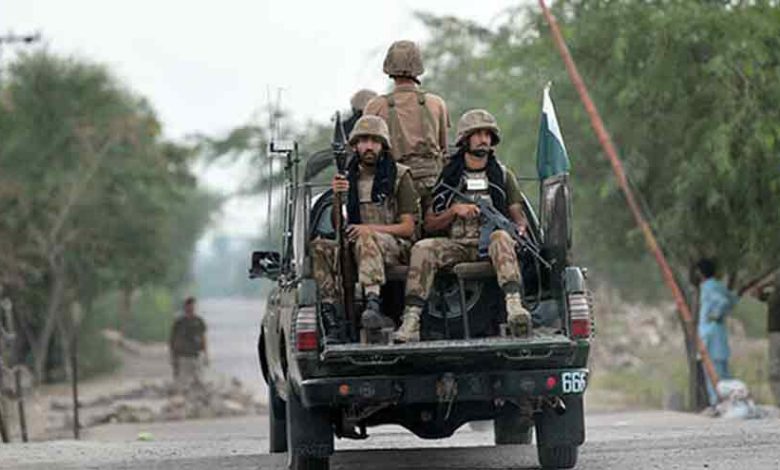Four terrorists are killed by security officers in Khuzdar IBO.

During an intelligence-based operation in the Khuzdar area of Balochistan, security forces killed four militants.
According to a statement released by the Inter Services Public Relations (ISPR) on Thursday, the operation was carried out on September 17 in response to reports of terrorists affiliated with Fitna al Hindustan, an Indian proxy.
Own forces successfully engaged the terrorists’ location during the operation, and following a fierce gunfight, four militants supported by India were killed.
The terrorists, who continued to be actively involved in a number of terrorist actions in the region, were also found to have weapons, ammunition, and explosives.
Since Pakistan’s security services are committed to eliminating the threat of Indian-sponsored terrorism from the nation, a sanitization operation is being carried out to eradicate any more terrorists discovered in the area.
Five Indian-sponsored terrorists were slain by security personnel in Khuzdar during an intelligence-based operation, according to ISPR a day earlier.
According to the military’s media wing, the operation was carried out on the night of September 14–15, 2025, in response to reports of terrorist activity.